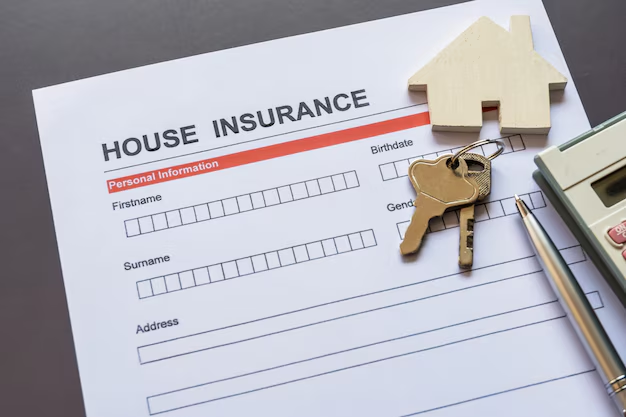Your Guide to Does Renters Insurance Cover Leaks
What You Get:
Free Guide
Free, helpful information about Renters Insurance FAQ and related Does Renters Insurance Cover Leaks topics.
Helpful Information
Get clear and easy-to-understand details about Does Renters Insurance Cover Leaks topics and resources.
Personalized Offers
Answer a few optional questions to receive offers or information related to Renters Insurance FAQ. The survey is optional and not required to access your free guide.
Does Renters Insurance Cover Water Leaks? Discover What You Need to Know
Water leaks can be a nightmare for renters, causing damage not only to the building but also to personal belongings. You might be wondering, "Does renters insurance cover leaks?" This is a common question, and understanding the nuances of renters insurance can help you protect your valuables and provide peace of mind.
What is Renters Insurance?
Before diving into coverage specifics, it's crucial to understand what renters insurance is. Renters insurance is a policy that protects tenants from losses and damages to personal property within a rented residence. It typically covers:
- Personal Property: Protection for your belongings like furniture, electronics, and clothing.
- Liability: Covers legal expenses if you're found responsible for injury or property damage.
- Additional Living Expenses: Pays for living costs if your residence becomes uninhabitable due to a covered peril.
Does Renters Insurance Cover Water Leaks?
Covered Scenarios
Renters insurance can cover water damage, but it largely depends on the cause of the leak. Here are some scenarios where you might find coverage:
- Sudden and Accidental Damage: If the water leak is abrupt, such as from a burst pipe, renters insurance often covers the resulting damage to your personal belongings.
- Plumbing Issues: Damage from a plumbing failure, assuming it wasn’t due to prolonged negligence, might be covered.
- Appliance Malfunctions: If a washing machine or a similar appliance malfunctions and causes a leak, renters insurance can usually cover the damage to your property.
Non-Covered Scenarios
Not all water-related damages are covered. Here are common situations where your policy might not help:
- Floods: Standard renters insurance typically doesn’t cover damages from natural flooding events. You may need separate flood insurance.
- Negligence: If the leak was preventable, such as ignoring a slow leak that turned into a bigger problem, coverage might be denied.
- Sewer Backups: Often, damages from sewer or drain backups require an additional endorsement.
Reading Your Policy: What to Look For
Important Clauses
When reviewing your renters insurance policy, pay particular attention to these sections:
- Named Perils: Policies often list specific perils covered. Ensure "water damage" in listed scenarios is included.
- Exclusions: Look for any exclusions to understand what incidents aren’t covered.
Deductibles and Limits
Remember, even if a water leak is covered, you may still be responsible for a deductible, and your coverage has limits. Verify what your policy’s deductible is and if the coverage limit will adequately cover your belongings.
Tips for Managing Water Leak Risks
- Regular Inspections: Periodically check plumbing and appliances to catch potential problems early.
- Prompt Reporting: Immediately report leaks to your property management to mitigate damage.
- Documentation: Keep records of all your possessions and their values for claims purposes.
How to File a Claim for Water Damage
Step-by-Step Process
- Document the Damage: Take photos or videos of the damages and affected items.
- Contact Your Insurer Promptly: Report the damage as soon as possible and follow their instructions.
- Follow Up on the Claim: Stay in regular contact with your insurance company to track the claim progress and provide any additional information needed.
What to Expect
The claims process typically involves an adjuster contacting you to assess the damage and determine the payout. Keep in mind that resolving a claim can take some time, so patience and persistence are key.
Pro Tips for Navigating Renters Insurance
- Review Annually: Policies can change, so review your renters insurance annually to ensure it still meets your needs.
- Bundle Policies: Consider bundling renters insurance with other policies for potential discounts.
- Understand Riders: If you have high-value items, adding a rider to cover them specifically might be prudent.
Key Takeaways
🔍 Focus Areas:
- Sudden Leaks: Covered as long as they result from unexpected incidents.
- Negligence: Typically not covered if damage was preventable.
- Flooding: Separate coverage required.
⚠️ Important Actions:
- Check Your Policy: Ensure it covers the types of water damage you are most concerned about.
- Maintain Records: Regularly update your personal inventory and document items of significant value.
- Consider Additional Coverage: Think about endorsements for specific water-related risks, like sewer backups.
In summary, while renters insurance can provide coverage for water leaks, it is vital to comprehend the specifics of your policy. Always be proactive about understanding potential risks and maintaining your property to minimize the chances of a claim being denied due to negligence. This understanding will empower you to make informed decisions and protect your belongings effectively.
What You Get:
Free Renters Insurance FAQ Guide
Free, helpful information about Does Renters Insurance Cover Leaks and related resources.

Helpful Information
Get clear, easy-to-understand details about Does Renters Insurance Cover Leaks topics.

Optional Personalized Offers
Answer a few optional questions to see offers or information related to Renters Insurance FAQ. Participation is not required to get your free guide.


Discover More
- Can a Landlord Require Renters Insurance
- Can I Add People To Usaa Renters Insurance
- Can Renters Insurance Cover Mold
- Can You Cancel a Renters Insurance Policy Early
- Can You Legally Rent a House Without Renters Insurance
- Do Apartments Cancel You Renters Insurance
- Do I Have To Have Renters Insurance
- Do I Need Renters Insurance
- Do Landlords Require Renters Insurance
- Do Renters Insurance Cover Mold
